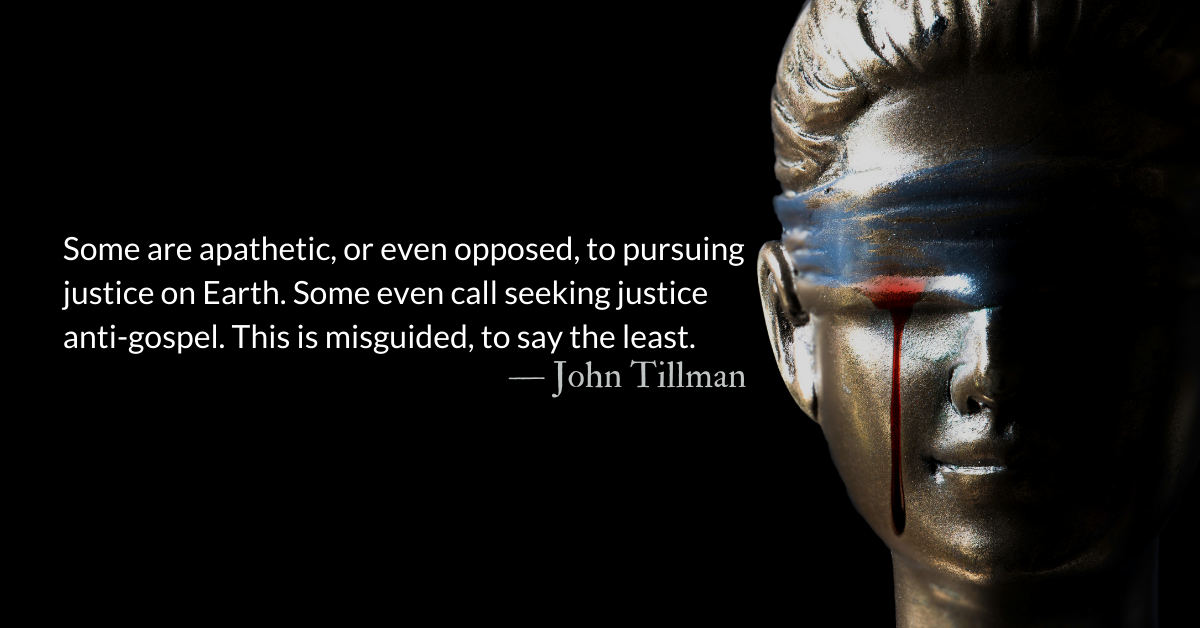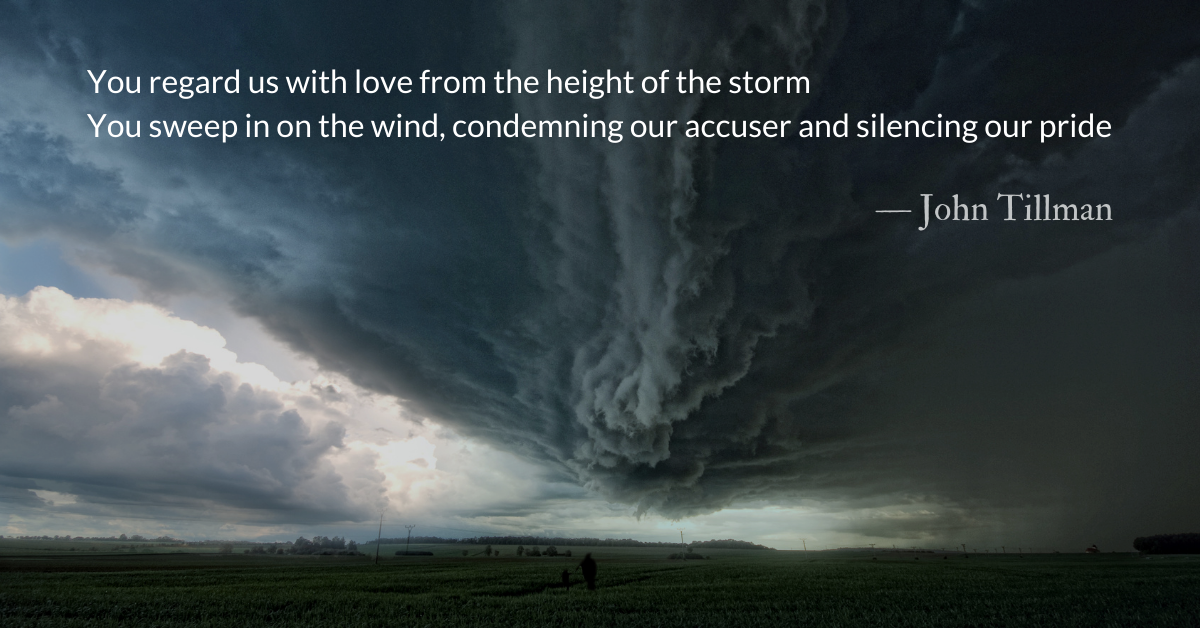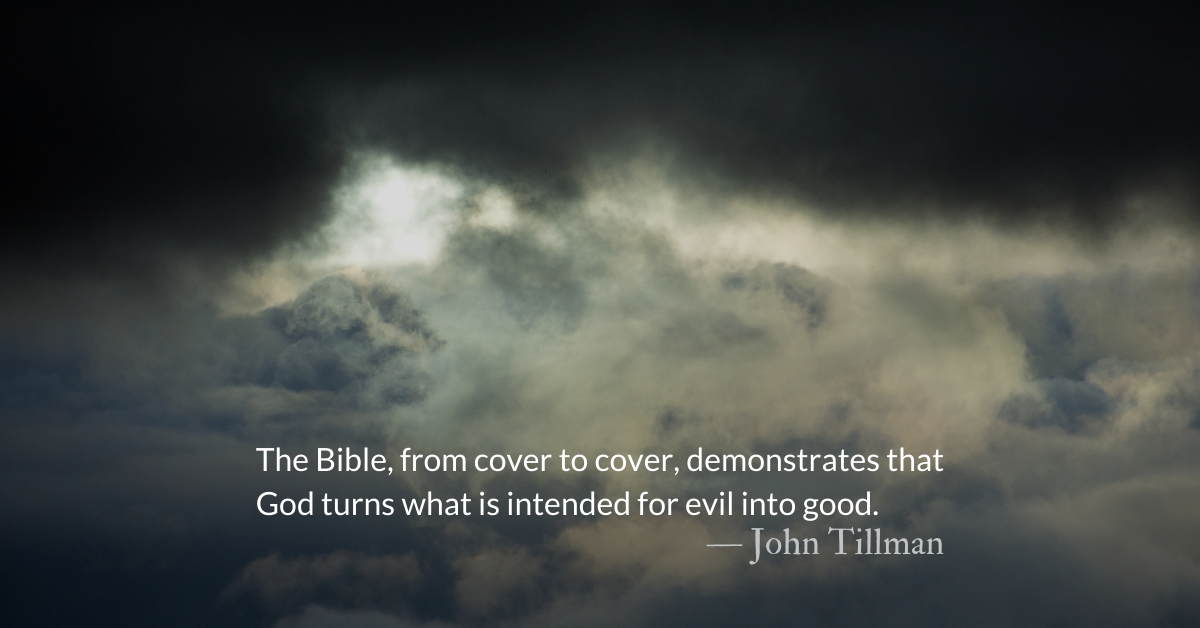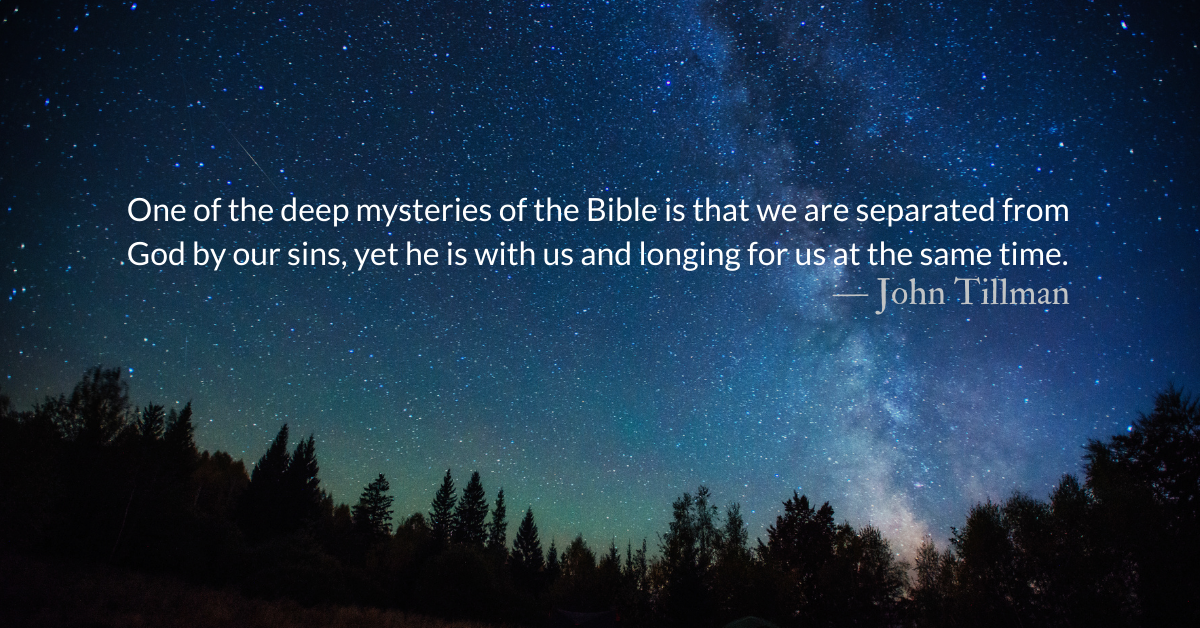Scripture Focus: Job 40.6-14
6 Then the Lord spoke to Job out of the storm:
7 “Brace yourself like a man;
I will question you,
and you shall answer me.
8 “Would you discredit my justice?
Would you condemn me to justify yourself?
9 Do you have an arm like God’s,
and can your voice thunder like his?
10 Then adorn yourself with glory and splendor,
and clothe yourself in honor and majesty.
11 Unleash the fury of your wrath,
look at all who are proud and bring them low,
12 look at all who are proud and humble them,
crush the wicked where they stand.
13 Bury them all in the dust together;
shroud their faces in the grave.
14 Then I myself will admit to you
that your own right hand can save you.
From John: This re-edited reflection from 2020, reminds us that children of God are expected to work justice on the Earth.
Reflection: God’s Sufficient Justice
By John Tillman
God dares Job to dress himself in splendor and work justice in the Earth by his own power. This may have seemed uniquely personal to Job. To use today’s vernacular, Job probably felt attacked. God’s challenge referred to Job’s earlier speeches and claims.
Job described dressing in a turban and robe that would proclaim his status and power. He claimed to have struck fear in the hearts of the wicked and to have carried out justice. (Job 29.7-17)
Job was “the greatest among the people of the East.” (Job 1.1-4) This may have meant Job was a chieftain or king, but even if not, he was as wealthy as one and equally responsible for the carrying out of justice in his community.
Earlier, in Heaven, God defended Job’s righteousness, but here, he seems unsatisfied. So, is Job righteous or not?
Like many heroes of faith in scripture, we can point to much earthly good in Job’s life to emulate. But like all of them, Job’s earthly actions are insufficient to claim righteousness before God.
Humans are capable of a certain level of justice and we are responsible before God to bring about justice. Justice comes first in Micah’s three-point list of what God requires: do justice, love mercy, and walk humbly. (Micah 6.8)
Job was arguably the most righteous person to ever live in scripture. Yet, scripture is clear that even the righteousness, or justice, of Job is as filthy rags compared to God’s glorious justice. Even the best of human justice is tainted. God still calls for it.
Being righteous before other humans is easy. We just have to be slightly less evil at heart than the next guy. But when God is the next guy, on our best day, we have no chance of being righteous in our own power. We, like Job, are simply incapable. We must simply cover our mouths, and throw ourselves on the mercy of God.
Because human justice is incomplete and imperfect some are apathetic, or even opposed, to pursuing justice on Earth. Some even call seeking justice anti-gospel. This is misguided, to say the least.
“Thy will be done on Earth” is a prayer for God’s justice by God’s power, not our own. When we act on this prayer, we will find Christ working with us, imputing God’s sufficient righteousness and justice to us.
Divine Hours Prayer: The Request for Presence
I long for your salvation, O Lord, and your law is my delight. — Psalm 119.174
– From The Divine Hours: Prayers for Autumn and Wintertime by Phyllis Tickle.
Today’s Readings
Job 40 (Listen – 4:55)
Psalm 52-54 (Listen – 3:18)
Read more about Justice to Wormwood
Justice is very much the business of people of faith and when people ignore it or frustrate it…God notices.
Read more about Justice of God
Miroslav Volf writes that In order to maintain non-violence, we need a belief that God will act in vengeance on behalf of victims.











